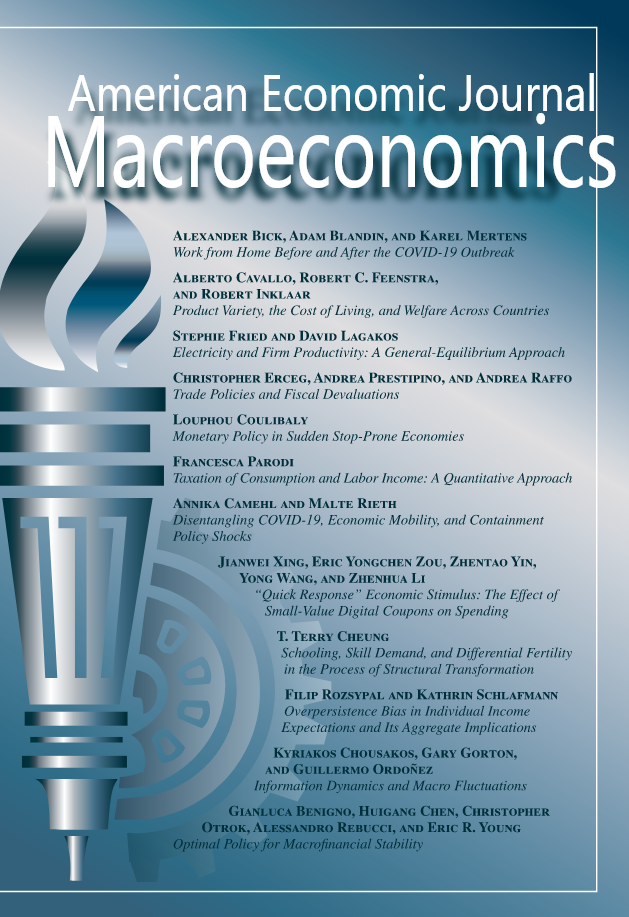高税收:企业家的角色
IF 5.7
1区 经济学
Q1 ECONOMICS
引用次数: 0
摘要
本文计算了包含企业家的bewley - huggett - aiyagari型经济的最优最高边际税率。与数据一致,企业家在收入分配顶端的比例过高,因此受到最高边际所得税率提高的不成比例的影响。使福利最大化的最高边际税率是60%。虽然在整个转型过程中,各行各业的平均福利收益都是正的,而且相似,但从长远来看,企业家的福利收益要大于工人,而且这种增税后福利收益的职业差距随着收入的增加而扩大。(凝胶d11, d21, d31, h21, h24, l26)本文章由计算机程序翻译,如有差异,请以英文原文为准。
Higher Taxes at the Top: The Role of Entrepreneurs
This paper computes optimal top marginal tax rates in Bewley-Huggett-Aiyagari–type economies that include entrepreneurs. Consistent with the data, entrepreneurs are overrepresented at the top of the income distribution and are thus disproportionately affected by an increase in the top marginal income tax rate. The top marginal tax rate that maximizes welfare is 60 percent. While average welfare gains are positive and similar across occupations along the transition, they are larger for entrepreneurs than for workers in the long run, and this occupational gap in welfare gains after the tax increase widens with increasing income. (JEL D11, D21, D31, H21, H24, L26)
求助全文
通过发布文献求助,成功后即可免费获取论文全文。
去求助
来源期刊

American Economic Journal-Macroeconomics
ECONOMICS-
CiteScore
8.20
自引率
1.70%
发文量
58
期刊介绍:
American Economic Journal: Macroeconomics focuses on studies of aggregate fluctuations and growth, and the role of policy in that context. Such studies often borrow from and interact with research in other fields, such as monetary theory, industrial organization, finance, labor economics, political economy, public finance, international economics, and development economics. To the extent that they make a contribution to macroeconomics, papers in these fields are also welcome.
 求助内容:
求助内容: 应助结果提醒方式:
应助结果提醒方式:


